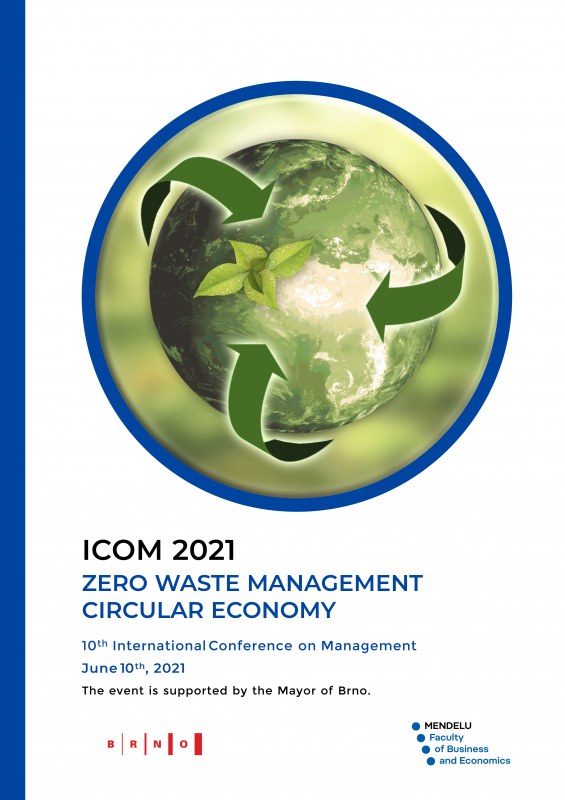
DOI: 10.11118/978-80-7509-820-7-0318
SHAPING AND MANAGING SELF-IMAGE AND MODULAR IDENTITY 2.0 – THE CASE STUDY OF POLISH LANGUAGE WIKIPEDIA USERSPACE
- Sebastian SKOLIK, Anna KARCZEWSKA, Katarzyna KUKOWSKA
The user pages of Wikipedia enable self-presentation and are used to build a personal brand. Managing self-image is possible, among others, by small banners called userboxes. Initially, they were supposed to be objective information about someone, not an element of self-presentation of one's personality. However, different types of userboxes were introduced.
Purpose: The aim of the research is to analyze the use of the userboxes in the context of managing one’s self-image and discussing the idea of modular identity 2.0.
Methodology: In the presented research, an attempt was made to characterize the course of the variability of userboxes as cultural elements that allow to shape and manage the image and determine the identity of the individuals posting them. For this purpose, qualitative and quantitative analysis of the content of the userboxes placed on the userpages was conducted, focusing primarily on the frequency of their occurrence and their modification over time.
Findings: The analysis of the content of over a thousand userboxes shows that after a short period of high variability at the beginning, the growth of new banners became smaller. As the results indicate, the most frequently replicated userboxes in Polish-language Wikipedia are those related to Wikipedia's digital environment, community identity and health. Moreover, the construction of self-image is becoming more and more reproductive, schematic and based on imitation.
Research limitations: Research has been conducted on one language version of Wikipedia. Some further comparisons with other language versions are recommended.
Keywords: digital marketing, image management, personal brand, userboxes, Wikipedia
pages: 318-326, Published: 2021, online: 2021
References
- Buss, D. M. 2003. Psychologia ewolucyjna, GWP, Gdańsk.
- Joyce, E., Pike, J. 2017. Too Much Information: The Influence of User Self-Presentation on Success in Mass Collaboration, In: 23rd Americas Conference on Information Systems Boston.
- Karaduman, I. 2013. The effect of social media on personal branding efforts of top level executives. Procedia - Social and Behavioral Sciences, 99: 465-473.
 Go to original source...
Go to original source... - Khedher, M. 2014. Personal Branding Phenomenon. International Journal of Information, Business and Management, 6(2): 29-40.
- Khedher, M. 2019. Conceptualizing and researching personal branding effects on the employability. Journal of Brand Management, 26(2): 99-09. DOI: 10.1057/s41262-018-0117-1
 Go to original source...
Go to original source... - Labrecque, L. I., Markos, E., Milne, G. R. 2011. Online Personal Branding: Processes, Challenges, and Implications. Journal of Interactive Marketing, 25(1): 37-50. DOI: 10.1016/j.intmar.2010.09.002
 Go to original source...
Go to original source... - Lair, D. L., Sullivan, K., Cheney, G. 2005. Marketization and the recasting of the professional self: The rhetoric and ethics of personal branding. Management Communication Quarterly, 18(3): 307-343. DOI: 10.1177/0893318904270744
 Go to original source...
Go to original source... - Lessig, L. 2014. Remix: making art and commerce thrive in the hybrid economy. Penguin Books, New York.
- Łaszczyca, P. 2017. Memy w pamięci: jak wyśledzić memy z mózgu. Teksty z Ulicy. Zeszyt Memetyczny, 18: 11-42.
- Neckar, J. 2018. Ewolucyjna psychologia osobowości. Wydawnictwo Akademickie Sedno, Warszawa.
- Neff, J. J., Laniado, D., Kappler, K. E., Volkovich, Y., Aragón, P., Kaltenbrunner, A. 2013. Jointly They Edit: Examining the Impact of Community Identification on Political Interaction in Wikipedia. PLoS ONE, 8(4): e60584. DOI: 10.1371/journal.pone.0060584
 Go to original source...
Go to original source... - Postman, N. 2002. Zabawić się na śmierć. Muza S.A., Warszawa.
- Shafiee, M., Gheidi, S., Sarikhani Khorrami M., Asadollah, H. 2020. Proposing a new framework for personal brand positioning. European Research on Management and Business Economics, 26(1): 45-54. DOI: 10.1016/j.iedeen.2019.12.002
 Go to original source...
Go to original source... - Shepherd, I. 2005. From Cattle and Coke to Charlie: Meeting the Challenge of Self Marketing and Personal Branding. Journal of Marketing Management, 21(5/6): 589-606. DOI: 10.1362/0267257054307381
 Go to original source...
Go to original source... - Westerman, W. 2009. Epistemology, the Sociology of Knowledge, and the Wikipedia Userbox Controversy. In: Blank, T. J. (ed.), Folklore and the Internet: Vernacular Expression in a Digital World. Utah State University Press, Logan, pp. 135-158.


